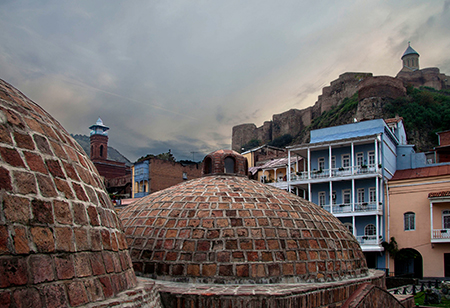Forbes: “The Countries Building The New Silk Road -- And What They're Winning In The Process”

The Netherlands was Georgia's largest investor in 2014, with $331 million USD. Photo by N. Alavidze / Agenda.ge.

Agenda.ge, Nov 26, 2016, Tbilisi, Georgia
In an article for Forbes, travel writer Wade Shepard describes how Georgia has transformed from a troubled post-Soviet nation into a state that serves as a hub connecting European and Asian markets.
"In the years immediately following the fall of the Soviet Union, Georgia’s economy was in shambles and civil war and revolution rang out across the country. It was a crisis situation for over a decade, and the country appeared to be on the trajectory of a failed state,” the author writes.
"But then in the mid-2000s the political situation stabilized and reforms were successfully initiated to curb corruption and better position the country as a target for international investment,” he adds.
Shepard says that the plan was to turn Georgia into a logistics and manufacturing hub in the heart of Eurasia, as a place where companies from every corner of the continent could meet in the middle to produce their wares cheaply and export them to Europe, Russia, Central Asia, Turkey, and Iran.
"Preferential and free trade deals were signed with neighboring countries as well as the EU, the CIS, the USA, and Japan, and Georgia fully jumped into China’s Belt and Road initiative, becoming one of the first countries to sign onto the Asia Infrastructure Investment Bank (AIIB),” Shepard says.
The author also describes the other countries involved in the New Silk Road.
Read the full article here: www.forbes.com
 Tweet
Tweet  Share
Share